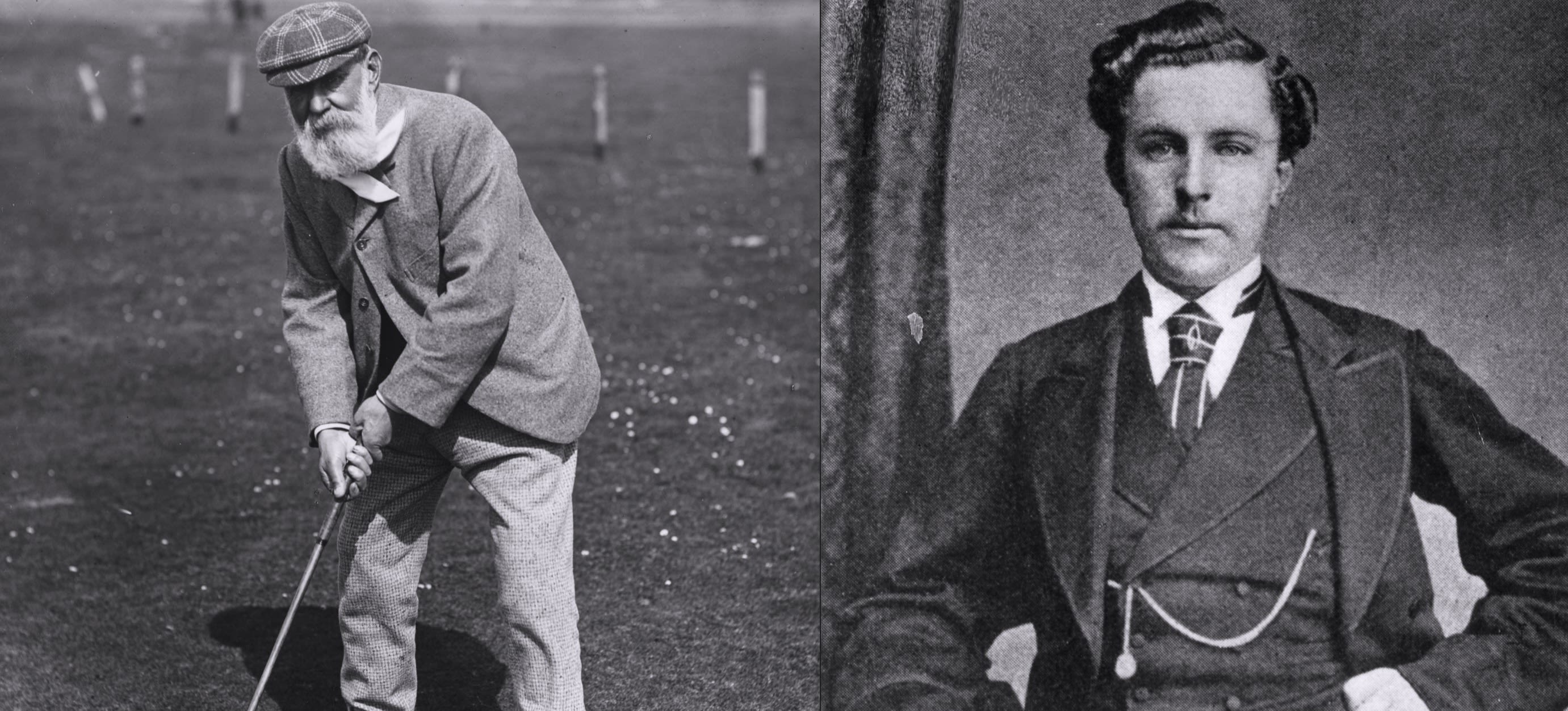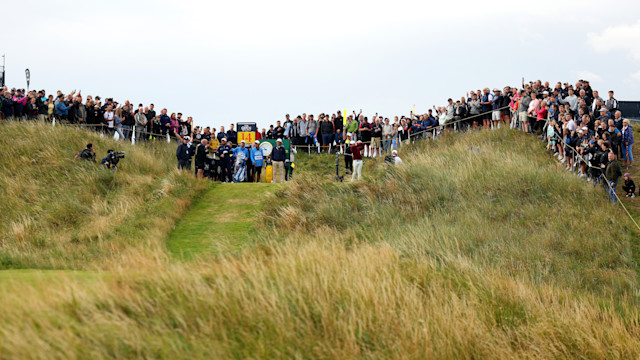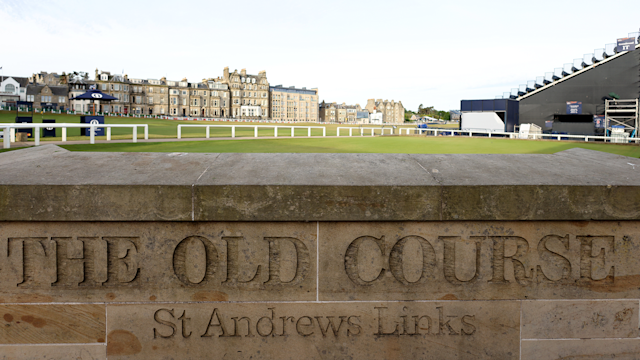Game Changers
Old Tom, Young Tom & The 'Magical' Morris Name Live On At Open Championship
By Adam Stanley
Published on

Old Tom and Young Tom Morris. (Hulton Archive/Getty Images)
During the week of The Open Championship, a single name holds more history than any other.
Morris.
Old Tom Morris and his son Young Tom (Tommy) were iconic sportsman of their eras, with golf being more than just a game to the father-and-son combo. It was a way of life until Young Tom Morris’ life tragically ended when he was just 24.
But the history of the Morris family (Tom had four children, with Tommy being the oldest) continues to very much live on — both in St Andrews and around the golf world.
“It’s fascinating we are still talking about them,” says Hannah Fleming, the Learning and Access Curator for The R&A, which is golf’s governing organization outside the United States. “At the time, they had that influence when other Open Champions didn’t.”
Golf’s first great ambassador
Fleming says if you can picture St Andrews in the 1820s when Old Tom Morris was born, that town was still considered the mecca of golf.
The Morris family was all golfers, and just as Young Tom took up the game, Old Tom was inspired to play by his own father. In terms of earning money, Fleming says, that wasn’t possible. The family was linen weavers, which was a big business in St Andrews and Fife. It became a dying industry, however, when Old Tom was a young boy. His father could see the next industry to take over the town would be golf.
“That was a better opportunity for Tom, at the time, than the traditional mill-work their family was involved in,” Fleming explains. “Everybody had a golf club and would go out and play golf. And this is the great thing about Scottish golf – we think of it as more democratic. Tom would go with his father to play golf and practice and learn and he grew up with it. It was just the thing that you did.”
Despite many photos to the contrary, Old Tom Morris was not a gruff character. He was an elder at his church and he enjoyed speaking with people. He enjoyed talking about golf, thinking about golf, and encouraging others in the sport. He enjoyed swimming in the sea and chatting with anyone and everyone.
“He could speak with a prince or a caddy, a local or a visitor. He had that natural way about him,” says Fleming. “Golf was not just the way he earned money, but it was his social life. It was so interlinked.
“You speak to golfers today and that’s still true.”
Old Tom, who won four Open Championships including in 1867 as a 46-year-old – the eldest such champion of the claret jug – would not just be limited to inspiring those as a great player. He had influence in every aspect of golf, Fleming says, like greens-keeping and course design, golf business and golf tourism, plus training of other men in the sport to help their careers spread.
The reach of the ‘Morris’ name, Fleming says, at a time when there was obviously no social media, carried plenty of weight. Old Tom was famous in his own lifetime, which, back then, must have been an odd experience. But Old Tom Morris had influence in every corner of the game.
“If you want to know about golf tourism . . . look at Tom Morris. Club and ball-making and selling? It started with Tom Morris. The world of golf was so small, but he did have this huge impact that is still felt today,” Fleming says.
Tragedy for Young Tom
Young Tom Morris’ death at 24 still resonates with so many, especially in St Andrews and Fife, because what he went through is not so uncommon even now. Father-and-son were playing a golf match when Young Tom got word his wife, Margaret, was in labor but was struggling.
They finished the match and came back to town by boat (faster than the train) but by the time Young Tom got back and ran up the street from the harbor, he was greeted by the church minister who told Young Tom that both his wife and child had died.
“I think about this every day because I walk past the house that Tommy lived with Margaret in and it’s not just a story in a book,” says Fleming, “it’s someone’s real, tragic life experience.
“You can only imagine the pain for such a young man to experience that.”
Young Tom, who won four Open Championships himself including at 17 (yes, the father was the oldest-ever Champion while the son was the youngest-ever Champion), would die on Christmas Day, 1875. According to Fleming, while Old Tom cared for his son and tried to provide some sort of stability in his life, Young Tom never really looked after himself after his tragic loss and became unwell.
The Morris name lives on
The loss was seismic, Fleming says, as plenty of questions about Young Tom Morris’ potential success remained unanswered. How many more Open Championships could he have won? What more could he have done for golf? Could he have gone further and pushed boundaries, or maybe done more international exhibitions – things that the golf world only saw from Harry Vardon, 25 years after Young Tom had passed away.
While the passing of Young Tom was tragic and impactful, the name ‘Morris’ remains one of the most influential in the game of golf and will continue to be moving forward.
“Those (other champions) didn’t have the same obvious success with their business or within their lives,” says Fleming.


